This crafts brand creates business starter kits so artsy M’sians can become entrepreneurs too
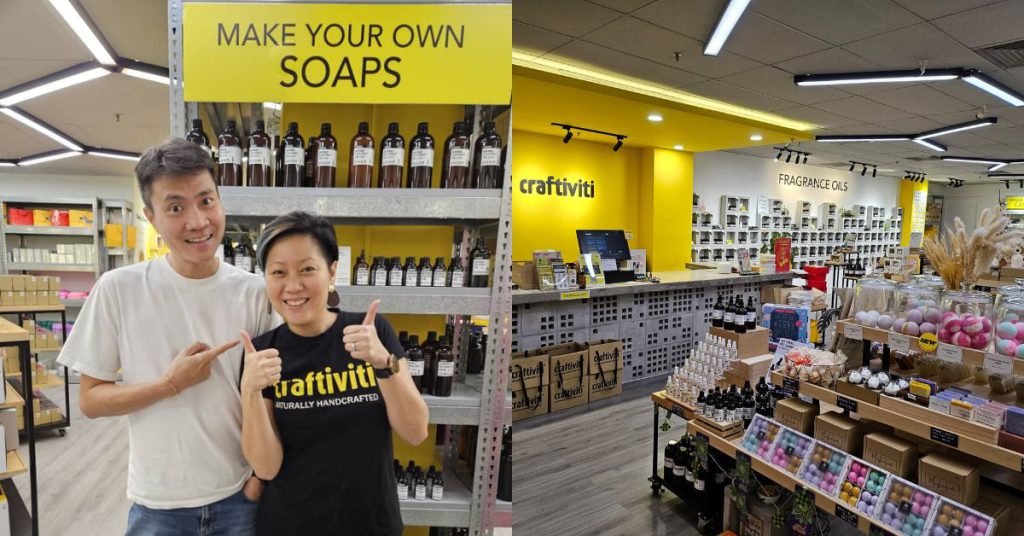
Almost a decade into running Craftiviti, which was started by co-founders Wei Yein and Eugene Tham, the business has emerged as a beacon in the realm of DIY crafting and entrepreneurship.
With a rich background in communication and a passion for creativity, this couple embarked on a journey that has evolved from humble beginnings to a thriving enterprise that now uplifts other entrepreneurs.
Crafting a creative empire
In 2010, Wei Yein and Eugene co-founded Caesar Paper Stone SB, an events company.
However, the relentless demands of the events industry eventually led them to pivot towards a new frontier—retail and ecommerce.
“Running an events company was fun until it wasn’t with late-night set-ups, rushed deadlines, the stress of crisis management and ageing bones.”
“So we decided to venture into retail and ecommerce to broaden our target market and ride on the growing ecommerce trend back in 2015,” said Wei Yein.
Transitioning from corporate events to arts and crafts, Wei Yein and Eugene embarked on a steep learning curve, harnessing their expertise to carve a niche in the market.
“We were glad we took the risk as the events company became inactive during MCO,” Wei Yein told Vulcan Post.
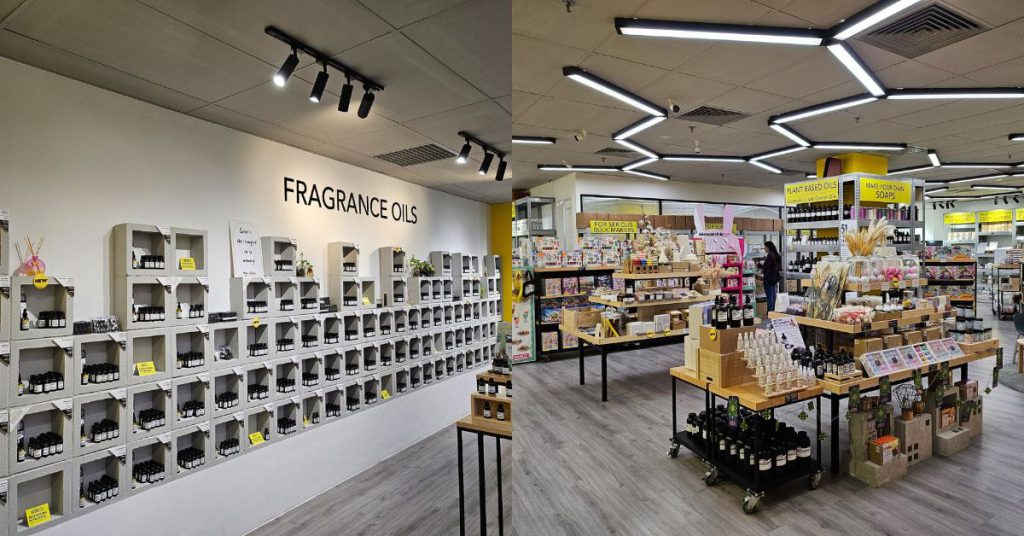
Initially operating as a comprehensive arts and crafts retailer, their focus gradually shifted towards candles and DIY personal care products crafted from natural ingredients.
While maintaining selected offerings such as epoxy resin and mould-making ingredients, they streamlined their inventory.
Crafting resilience
They have encountered similar businesses since their inception, but don’t view them as competition. Instead, the see this as an affirmation of a thriving market for the creative movement.
“We don’t react to competition, we work with them. To date, we work with and have partnerships with many craft businesses. We believe this industry needs to support each other to grow together,” Wei Yein said.
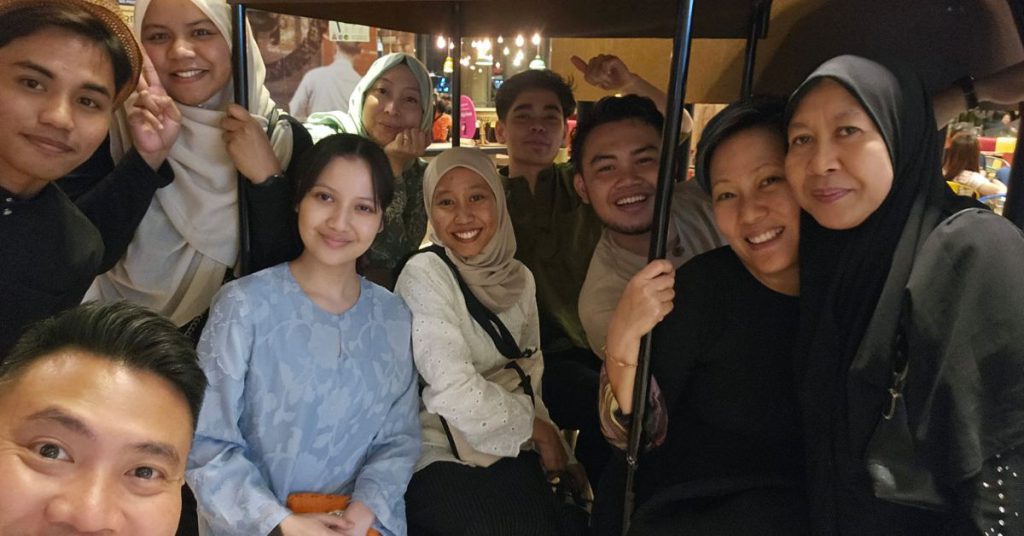
While unconventional, this approach has proven successful as long as they uphold their brand values and maintain consumer trust.
In fact, Craftiviti has even unveiled business starter kits as a strategic initiative aimed at empowering aspiring entrepreneurs to venture into the world of handmade products.
The inception of these business starter kits stemmed from the company’s desire to assist individuals in realising their dream of launching a business in handmade candles, soaps, lip balms, DIY personal care products, and beyond.
Understanding the arduous journey of R&D in DIY crafts, often constrained by limited budgets and room for error, Wei Yein said they designed their business starter kits to alleviate these challenges.
“Today we have launched our candle and lip balm business starter kits. We are working on more business kits as we speak,” she shared.
The kits enable entrepreneurs to kickstart their ventures with ease, offering options to produce 20 to 100 candles or 150 lip balms at a significantly reduced cost.
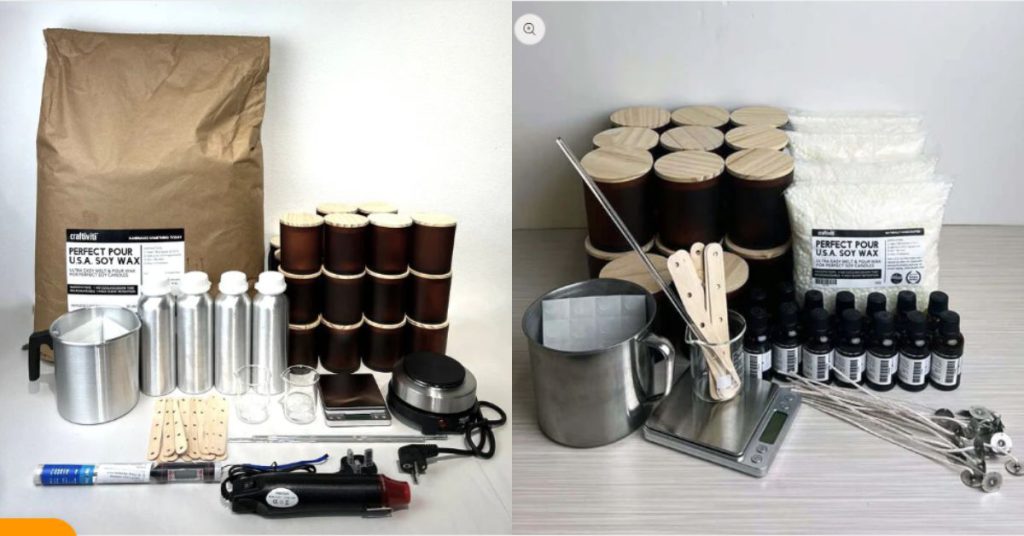
“Our business starter kits aim to support budding entrepreneurs by minimising this pain and making the product creation process as seamless as possible so entrepreneurs can focus on brand building and selling a well-made product from the get-go,” she said.
Navigating choppy waters
For a span of four years, they thrived in their prime until the emergence of ecommerce giants like Lazada and Shopee, accompanied by a flood of cheaper products from China.
Although they endeavoured to compete with marketplace pricing, they prioritised maintaining the quality of their offerings.
However, they later realised that price wars weren’t necessarily worth fighting.
So, in late 2023, amidst economic challenges, they boldly decided to increase prices while implementing a reward system for loyal customers, ensuring mutual growth and sustainability.
Despite initial apprehension, the decision garnered unexpected support, demonstrating their customers’ enduring trust and loyalty.
“Customers would travel from across Malaysia to visit our compact outlet nestled within an office lot,’ she added.
The Craftiviti vision
Amidst the tumultuous tides of entrepreneurship, Wei Yein and Eugene emphasise the importance of resilience, adaptability, and effective communication in sustaining their partnership.
Looking ahead, Craftiviti envisions expanding its footprint internationally, harnessing the transformative power of technology and AI to amplify its reach.
“In the next ten years, we will get into the international markets. Currently, our website is open to accept international orders and we hope to grow this market beyond Malaysia.”
“Last month, our Crafti-kits were listed on Amazon and Etsy. We have also started generating orders from Brunei and Singapore with affordable shipping fees,” she added.
They also aim to curate more DIY beginner kits and broaden their ingredient selection, fostering creativity worldwide.
As they embark on the next chapter of their journey, Wei Yein and Eugene remain resolute in their mission to unlock the full potential of the Craftiviti brand, one creative endeavour at a time.
- You can learn more about their business here.
- Read other articles we’ve written about Malaysian startups here.
Also Read: Employees need a Copilot to boost productivity & ease brain drain. This webinar shows how.
Featured Image Credit: Craftiviti
This M’sian creates items that no pet owner can resist—gifts modeled after your furbabies
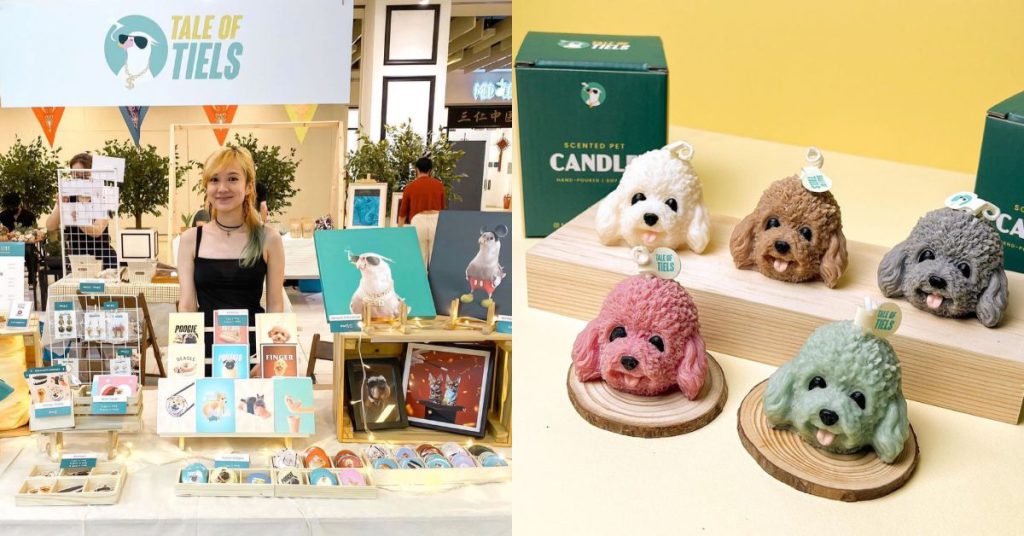
In a world where companionship knows no bounds, this entrepreneur crafted a businesses to celebrate the enduring bond between humans and their furry friends.
Ariel, the founder of Tale of Tiels, carved out a niche that merges her artistic talents with her love for pets. This serves as the basis of her side hustle.
Coming from a design background, with a focus on animation and graphic design, Ariel’s journey into the realm of personalised pet gifts and home decor is as wholesome as the creations she brings to life.
A creative genesis
Ariel’s entrepreneurial venture began as a passion project on Instagram, where she showcased her photo manipulations featuring her beloved pet birds, particularly her cockatiels.
As interest grew in what she was doing, so did Ariel’s confidence in transforming her creativity into a business.
Thus, Tale of Tiels was born, offering custom pet portraits and evolving into a hub for unique, personalised items for pet lovers.
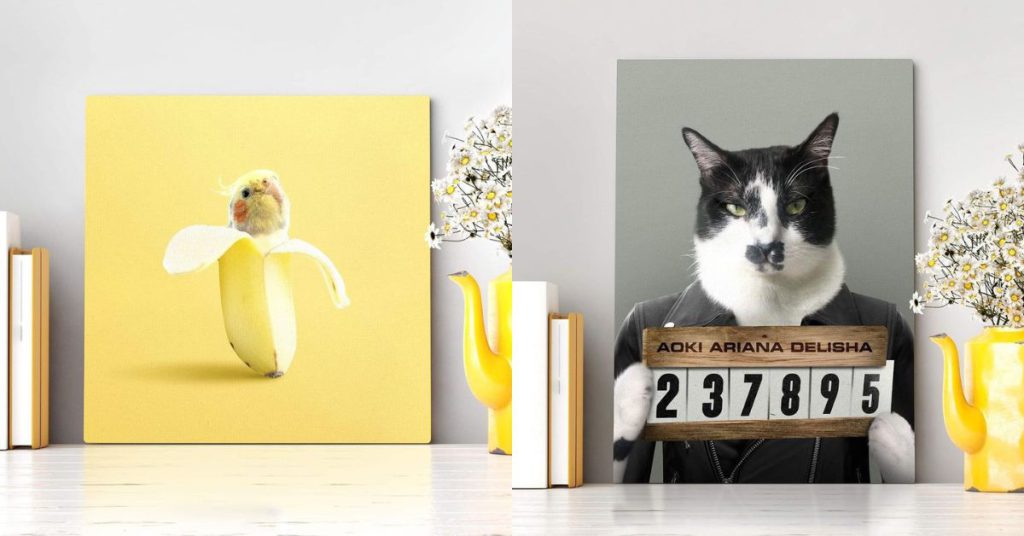
The name “Tale of Tiels” holds a special significance for Ariel, reflecting the stories and personalities of her cockatiels.
“’Tiels’ refers to cockatiels, and ‘Tale of’ signifies the stories behind each photo—the cute and memorable moments captured with my birds,” said Ariel.
Each product crafted under this name carries the essence of these tales, encapsulating the cherished moments shared between pets and their owners.
Handcrafted with love
While Tale of Tiels primarily offers personalised pet portraits, Ariel’s craftsmanship extends to pet-themed handcrafted candles, aroma stone diffusers, and earrings.
Ariel’s journey into creating candles started when she began selling her items at physical pop-up markets, realising the need for ready-to-sell products to complement her personalised pet portraits.
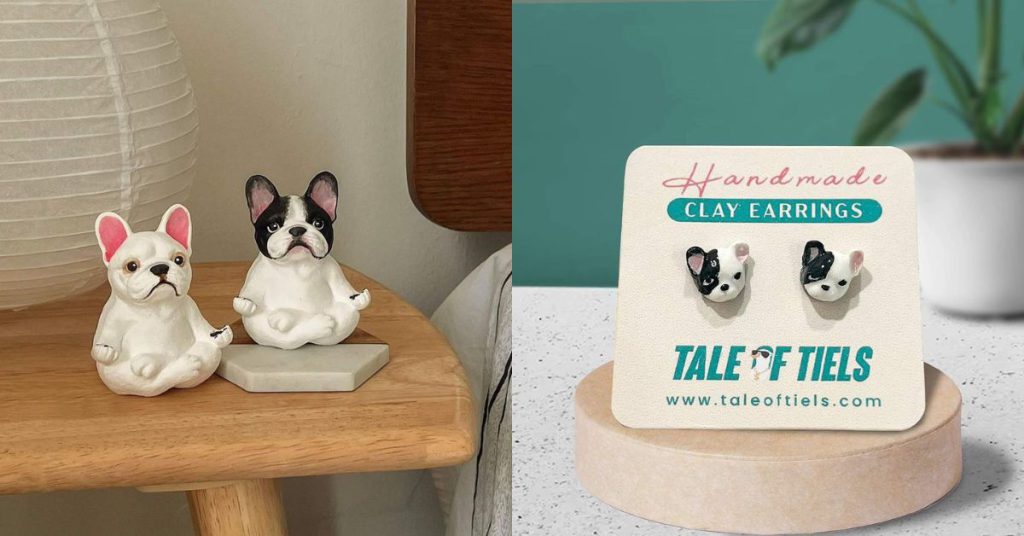
“I quickly realised that not everyone was immediately drawn to personalised pet portraits, as they often require time and consideration before making a purchase. To increase sales at these events, I needed products that were ready to sell on the spot.”
“While our focus is on decorative items like personalised portraits and keepsakes, I also aim to incorporate functionality into some products. For instance, our candles serve both as decorative pieces and functional aromatherapy tools, offering a blend of aesthetics and usefulness,” Ariel told Vulcan Post.
Each candle is crafted using moulds instead of advanced techniques such as 3D printing or sculpting, ensuring that every piece reflects the care and dedication poured into its creation.
While Tale of Tiels currently doesn’t offer customisable services for scented candles and diffusers due to standardised moulds, Ariel remains open to exploring custom options if there’s enough demand and it aligns with the brand’s goals.
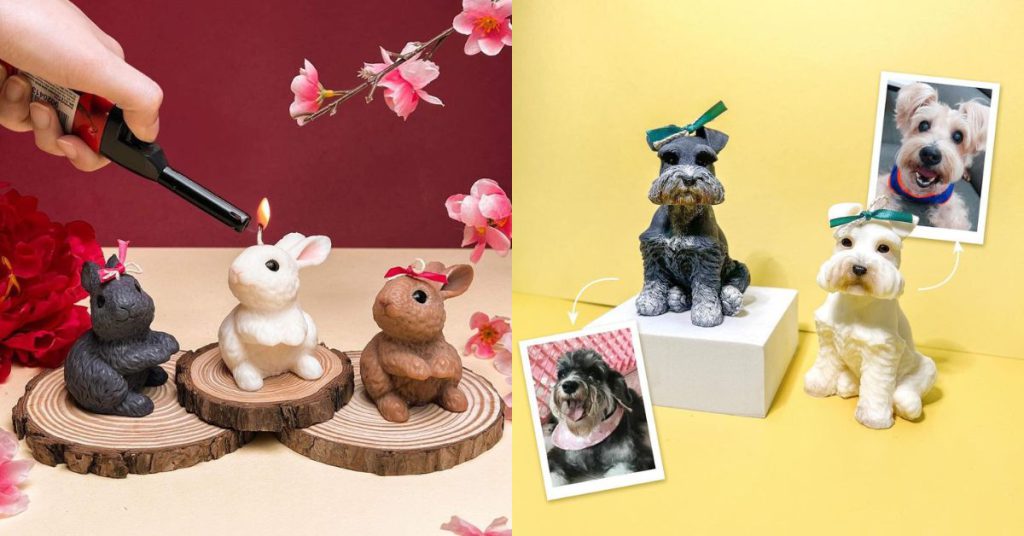
It’s not a decision she can make on a whim, as Ariel’s process for creating personalised pet portraits involves a collaborative journey with her customers.
From initial consultations to finalising the artwork, Ariel infuses each piece with her personal touch, drawing inspiration from the pets’ unique personalities and the stories their owners shared.
Balancing art and business
In short, Tale of Tiels primarily caters to pet owners who cherish their furry companions and seek personalised gifts to celebrate them.
“We also cater to corporations looking for unique and meaningful door gifts for events and promotions,” she said, adding that there’s something for everyone who appreciates thoughtful gifts.
Her products are ideal for gifting purposes, appealing to birthdays, holidays, or other special occasions.
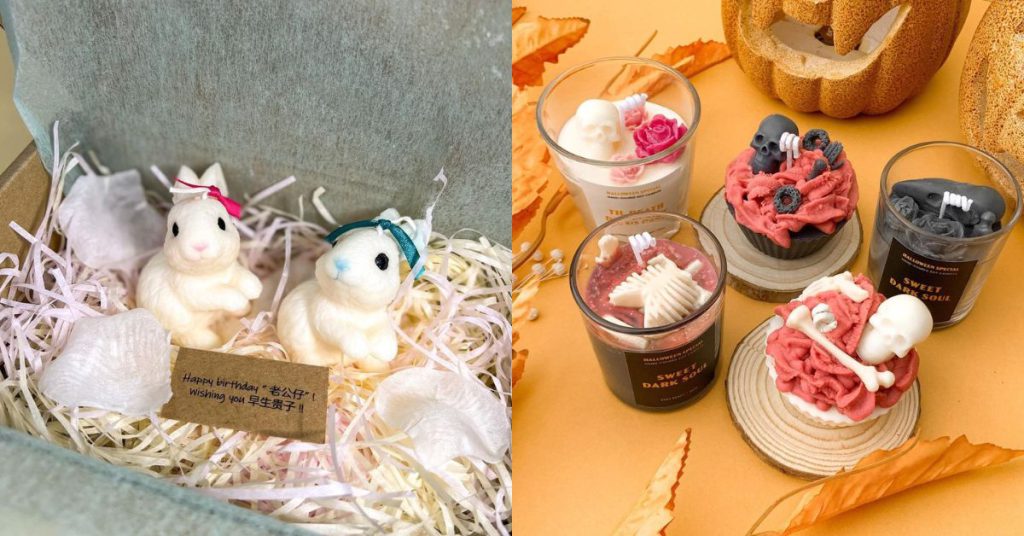
Despite starting with minimal capital investment, Tale of Tiels has steadily grown its revenue.
The brand’s products are strategically placed at pet cafes, contributing to passive revenue streams.
She believes that her continuous efforts to seek feedback and improve products and services ensure that Tale of Tiels will remain a trusted and preferred choice for personalised pet gifts.

A vision for the future
Ariel acknowledges that balancing everything with Tale of Tiels has become more challenging lately due to her full-time job’s increased demands.
“The biggest challenge of running Tale of Tiels so far has been managing every aspect of the business independently, including finance, marketing, and production,” she said.
Yet, she navigates these waters with effective time management and a commitment to providing exceptional service to her customers.
In the short term, Ariel aims to expand Tale of Tiels’ presence in physical stores, increasing brand visibility.
Looking ahead, her vision is to establish Tale of Tiels as a household name in the personalised pet gifting industry, collaborating with big brands and exploring new distribution channels.
Through Tale of Tiels, she not only crafts personalised memories but also celebrates the special bond between pets and their owners.
- You can find more about the business here.
- Read other articles we’ve written about Malaysian startups here.
Also Read: Employees need a Copilot to boost productivity & ease brain drain. This webinar shows how.
Featured Image Credit: Tale of Tiels
He pioneered craft beer bars in M’sia, now has 3 branches & supplies to over 80 businesses

If you’re a craft beer enthusiast in Malaysia, you might be familiar with Farmer’s Bar, or at least one of their three outlets around the Klang Valley.
Farmer’s Bar was founded by enthuasiasts themselves, Mok Yii Chek and Mei Ling. Childhood friends from Port Dickson, the two actually are serial entrepreneurs.
The duo is behind the Everest Group of Companies, which has businesses in various industries such as IT, solar, dentistry, media, engineering, oil & gas, and property development.
But Farmer’s Bar is one venture particularly close to the heart of Mok, who is an avid traveller and lover of beer. He shared candidly with Vulcan Post that he started drinking the beverage at a young age.
“Let’s not say when,” he chuckled.
Having been to many countries around the world and tasting some of the world’s best beers, he noticed a lack of beer varieties back home in Malaysia. Commercial beers in Malaysia mainly comprise lagers, stouts, and not much else.
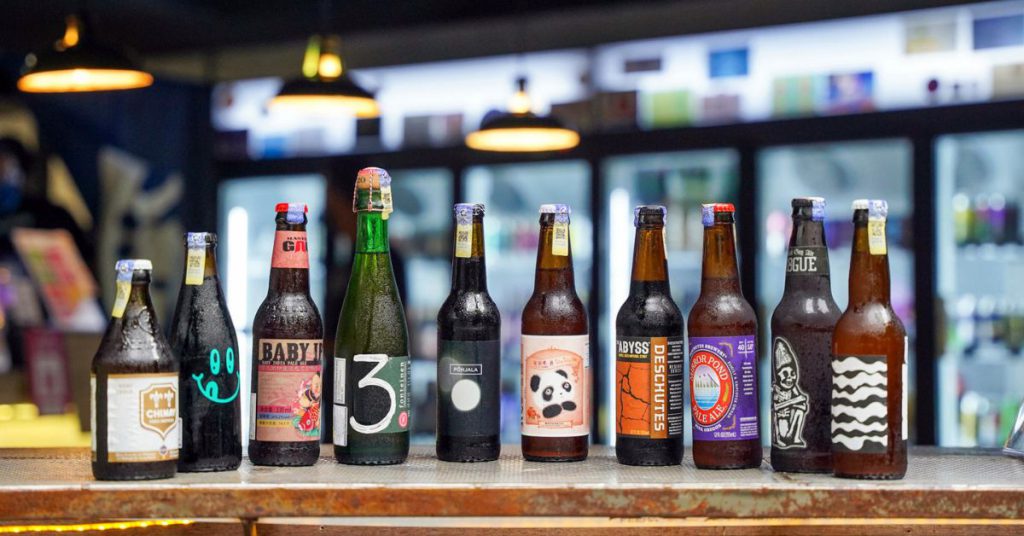
“There are so many, many, many more varieties and taste of beers that people are missing out,” he expressed. “Did you know that beers can be sour, sweet, spicy, bitter, hazy, fruity, chocolatey, piney, flowery… and the list is endless!”
Driven by the desire to popularise different kinds of beer, Mok and Mei Ying launched Farmer’s Bar in October 2018, beginning with a retail store in Cyberjaya.
Pioneering craft beer
Back then, craft beers in Malaysia were only known by a small group of people, typically those who studied or travelled abroad.
With that in mind, there hadn’t been any purveyors of craft beer online, either. Thus, as they launched the physical store, Farmer’s Bar also looked into ecommerce. They now claim to be the first online craft beer store in Malaysia.
“As of today, we distribute beers to over 80 bars, cafes, restaurants, hotels, and grocers in Malaysia,” Mok elaborated.
Farmer’s Bar carries beers from all over the world from all sorts of breweries.
“Some breweries produce for their own local consumptions in small batches as craft brewers only and hence we can’t get our hands on them,” Mok said. “We are grateful for those breweries that are willing to export to Malaysia.”
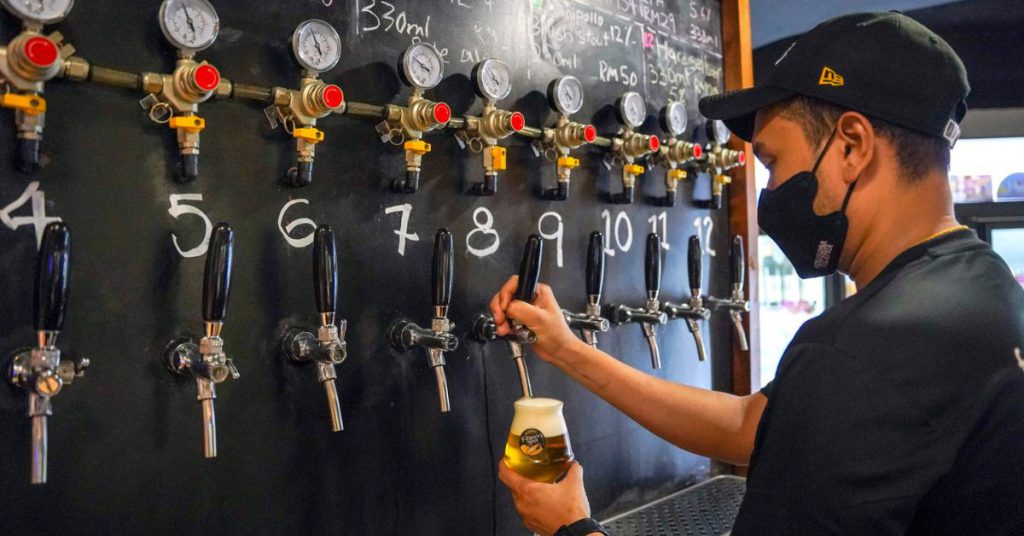
The import process takes approximately three to six months, the founder said. A chunk of this duration is spent on the large amount of paperwork involved.
Localising each outlet
Initially, Farmer’s Bar only sold beer.
However, listening to their customers, the team realised that there was a demand for food. Most Malaysians are foodies, after all.
Instead of just introducing the same menu across the board, though, Farmer’s Bar offers its patrons something new and unique at each outlet.
Mok explained that this is because the local crowd at each location is different, so the team decided to just go with the flow.
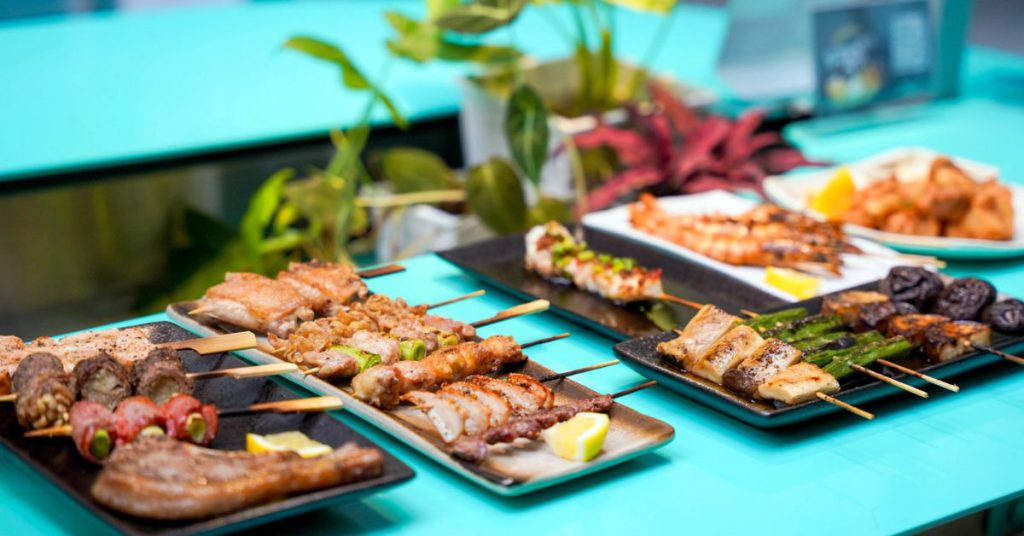
“At Puchong, the Chinese crowd prefers ‘dai chao’—local hawker style food,” Mok explained.
He continued, “At Subang Parade, the young energetic crowd loves Western, yakitori, and Japanese food. At Avenue K, the surrounding working office crowd is looking for a quick and good set lunch.”
To cater to the different crowds, business partners are necessary. For one, the Subang Parade outlet works with RyoRi Kitchen to create a relevant menu for the audience there.
Meanwhile, the Avenue K location is helmed by an award-winning chef, Chef Fifi Leong.
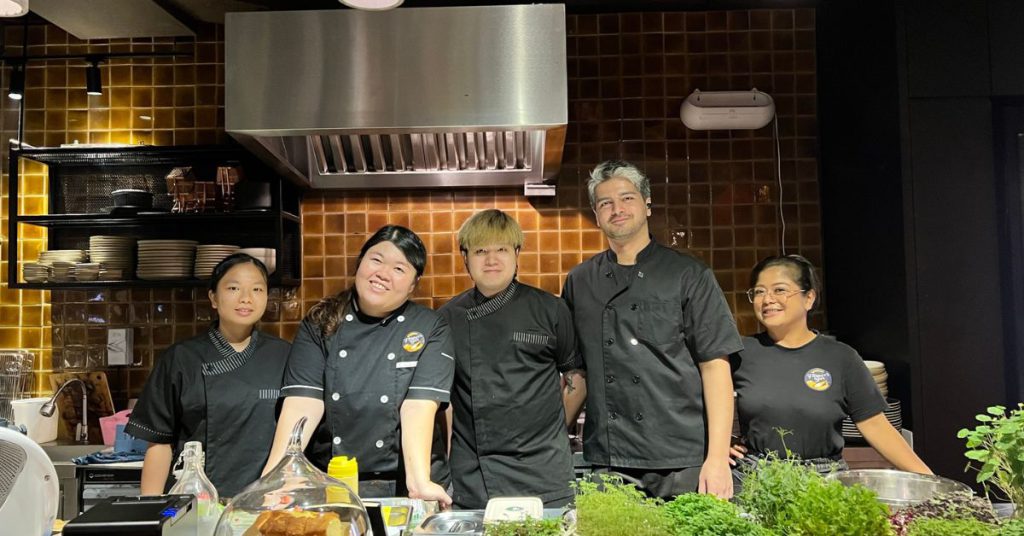
At Subang Parade, Farmer’s Bar also houses Double Dough Artisan, which is managed and owned by Emilyn, the founder of Puchong café Bistro Monologue.
Looking up each of the locations, you’ll also notice that they sport different aesthetics, providing customers with unique experience at every location.
Surmounting challenges
Although Farmer’s Bar started out in a barren craft beer landscape, the culture has grown to become more and more popular with the masses over the years.
Mok shared that this is a good thing, and he’s glad that there are many other places serving craft beer in the Klang Valley.
“Many (I think almost all of them) are our good friends,” he added. “Quite a number of them work with us on distributing beers we import.”
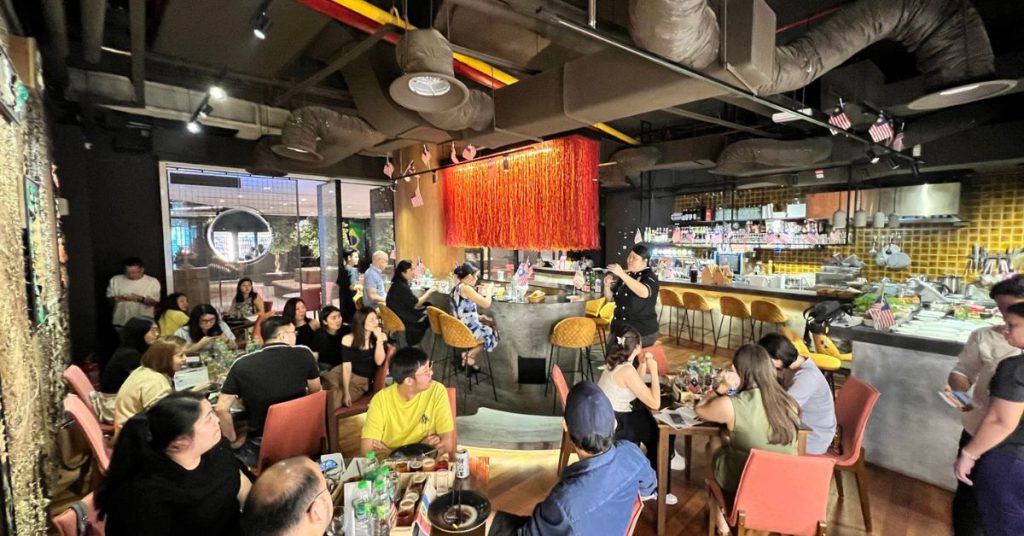
In fact, Farmer’s Bar often collaborates with other players on beer launches and other events.
Rather than competition amongst different craft beer brands, Mok shared that the challenge is more about the big-picture longevity of an F&B business.
“Failure rates for the F&B industry are higher than any other industries out there,” he said. “Especially during COVID, I believe many other businesses including ours stuttered.”
He revealed that he and Mei Leng had to dig into their personal savings to continue paying rental, bills, and salary. Thankfully, they were supported by their suppliers who extended their payment terms during the difficult time.
The silver lining at the time, though, was the fact that Farmer’s Bar had established its ecommerce arm by then.
Still, not all is sunshine and rainbows. For one, the first-ever Farmer’s Bar in Cyberjaya had to close down, along with the Kota Damansara branch.
However, the latter is not due to underperforming business, but rather because the owners wished to take back the space for redevelopment.
“A hell lot of challenges indeed,” Mok mused. “But the passion for craft beers keeps us going.”
And that passion will likely keep them going for years to come.
- Learn more about Farmer’s Bar here.
- Read other articles we’ve written about Malaysian startups here.
Also Read: Why M’sians need to join this 2-day event in PJ that’ll boost your understanding of IPs
Featured Image Credit: Farmer’s Bar
Will the new FWA guidelines truly support employees? Here’s our analysis and why we think so
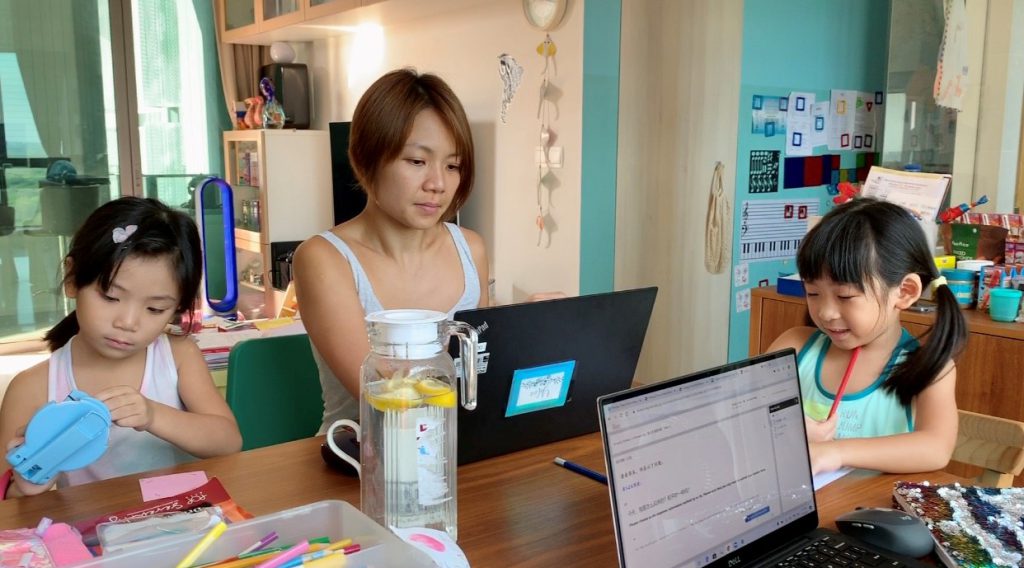
The COVID-19 pandemic gave rise to several outcomes, one of which is the new norm of remote work.
Post-pandemic, hybrid work quickly rose in popularity. In this model, employees are only required to return to the office for a designated number of days, shying away from the age-old routine of going to the office for five days a week.
However, it has also created a discourse between employers, who were concerned about decreasing productivity and efficiency, and employees, who see the allure of being more flexible in their work.
It seems that the Singapore government is on the affirmative side of the debate, as they just announced the new tripartite guidelines that will allow employees to formally request flexible working arrangements (FWAs) from December this year.
Here’s why the new guidelines might create a win-win solution for both employers and employees.
A breakdown of the new rules
For starters, let’s do a quick recap of the guidelines and their objectives:
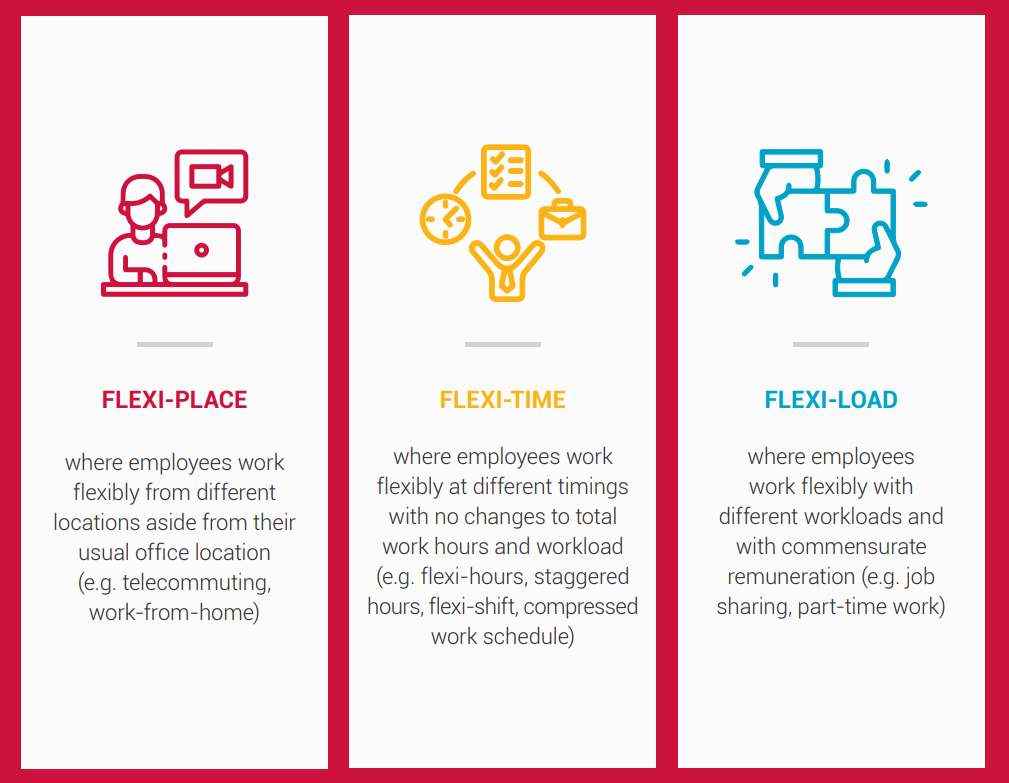
- Employees will be required to formally submit their requests in writing for an FWA
- Employers would have up to two months to consider and evaluate the viability of the arrangement.
- Both parties will need to reach a consensus on the different factors before implementation.
According to an announcement on MOM’s website, the guidelines will take an “educational approach” to help companies have a harmonious workplace culture that is based on trust and reciprocity.
The rules also aim to help employees request FWAs more easily while acknowledging employers’ rights to decide on work arrangements.
Singapore is one of the few countries after the United Kingdom and Australia to introduce a new policy on FWAs. It is also worth noting that earlier this year, Australia made worldwide headlines for passing a law that gives employees the right to ignore after-work office calls.
But, there’s always a catch
Can employees truly benefit from the policy, with the employer having the deciding power to accept or reject an FWA request?
For some remote staff, the flexibility comes at a price — one that they might not want to pay. According to a report by the Wall Street Journal, remote employees are 35 per cent more likely to be laid off by their companies.
Furthermore, in 2023, more than 3 per cent of remote jobs were cut than in-person roles.

They say that seeing is believing, and bosses are reported to be less likely to offer promotions to employees whom they can’t put a face to.
Several surveys and articles have pointed out conflicting views on job flexibility and setting expectations, which widens the gap between employers and their staff.
In a study conducted by Indeed, 83 per cent of the employers in Singapore believe that they provide enough flexibility, but only 61 per cent of employees agree.
A survey by Morgan McKinley also showed that 61 per cent of employers in Singapore have made it mandatory for employees to return to the office since the COVID-19 pandemic.
However, a whopping 89 per cent of employees prefer to work in a hybrid or fully remote model.
These findings not only show the difference in point of view (POVs) but also amplify the fact that many employers are not willing to let go of their “control” and “surveillance” over their employees.
The new guidelines also have the potential to increase competition within an already competitive job market.
In an interview with CNA, Tan Wan Ting, the founder of digital marketing agency Weave Asia, shared her worries that the FWAs will result in “messy” hours for her team, which will affect their reach and response time.
She also added that if FWAs have become the norm, she may have to consider hiring abroad where the manpower costs are lower. While she clarified that she considers hiring local talent if they have unique skill sets, she was concerned that it would no longer be the case.
“Why do I need to hire full-time staff now if there are flexi-work hours? Might as well I gather a pool of talent, I pay them by the hour,” she said.
Creating win-win solutions
However, the new guidelines do not aim to push employers to mandate FWAs like a 4-day work week immediately, as different cases have proven that it is not applicable to every company.
Rather, it focuses on providing an option for Singaporeans with unique living conditions. We need to remember that Singapore has an ageing population and that the number of caregivers in the country will only increase — a fact that the Singapore government has acknowledged.
It is our duty to create an environment that is supportive so that those people who want to work can continue to work, even while they are managing other family duties at home.
Minister Gan Siow Huang, Minister of State for Manpower in a dialogue
As of now, Singapore has more than 210,000 people who are caregivers.
From the employers’ perspective, having FWAs can increase their capability to retain talent. According to an article by HRM Asia, 62 per cent of employees are less likely to leave their jobs in 2024, as compared to those working fully remotely (51 per cent) and in-office (45 per cent).
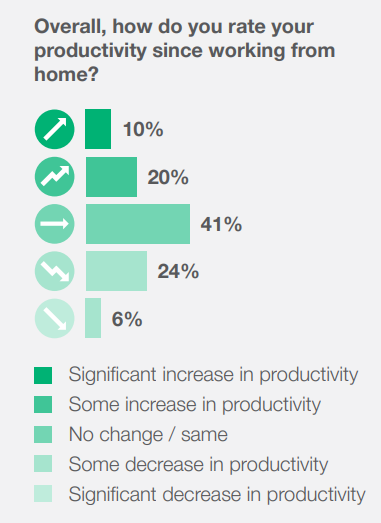
Combined with the rise of caregiver burnout in the country, this is a sign that employers should do their part to assist employees in meeting their productivity metrics while still accounting for their mental health.
While the new guidelines are not a one-size-fits-all solution, they will create opportunities for both bosses and staff to collaborate and build trust with one another.
A win-win solution for both parties who are often at odds sounds like heaven to me!
Featured Image Credit: gov.sg
Also Read: All S’pore employers must consider formal requests for flexi-work from Dec 1 under new rules